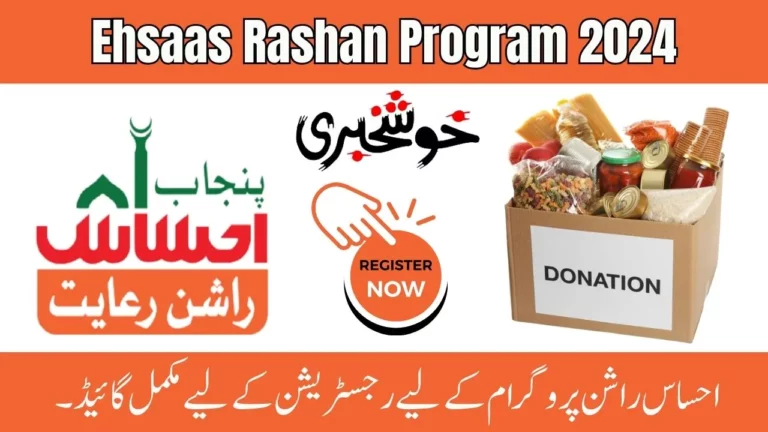Ehsaas Program: Zero Tolerance on Beneficiary Disrespect 2024

The government has implemented a new policy titled “Zero Tolerance on Beneficiary Disrespect.” This policy is part of the Ehsaas Program, which aims to ensure that all beneficiaries are treated with respect and dignity. The Ehsaas Program is a social safety net effort that aims to assist the poorest and most vulnerable members of society. This policy demonstrates the government’s dedication to defending the rights and dignity of its residents.
Introduction to the Policy
The Zero Tolerance for Beneficiary Disrespect policy requires that all government officials and service providers treat beneficiaries with the highest respect. Any disrespect, discrimination, or harassment of recipients will not be accepted. This policy governs all interactions between government officials and beneficiaries, whether in person, over the phone, or by any other means of communication.
| Key Measure | Description |
| Training Programs | Government officials and service providers are trained to treat beneficiaries with respect and dignity. |
| Complaint Mechanisms | An accessible system for beneficiaries to report instances of disrespect. |
| Disciplinary Actions | Swift and fair actions, such as warnings, suspension, or termination for violators. |
Purpose of the Policy
The primary goal of this policy is to guarantee that Ehsaas Program participants are treated with the dignity and respect that they deserve. Beneficiaries frequently come from marginalized and vulnerable backgrounds, thus they must be treated with care and consideration. This policy seeks to foster a more inclusive and courteous environment for all beneficiaries.
Implementation of the Policy
The execution of this strategy entails numerous steps:
- Teaching government officials and service providers how to engage politely with recipients.
- Setting up a complaint mechanism via which recipients can report incidents of disrespect.
- Regular audits and reviews are conducted to guarantee policy compliance.
- Taking strong disciplinary action against officials who break the rules.
Benefits of the Policy
The Zero Tolerance for Beneficiary Disrespect policy has various advantages:
- It cultivates a culture of respect and dignity.
- It promotes confidence between recipients and government authorities.
- It makes the recipients feel cherished and respected.
- It decreases the likelihood of discrimination and harassment.
Challenges in Implementing the Policy
Implementing this strategy is not without difficulties. Some of the challenges are:
- Ensure that all government officials and service providers receive sufficient training.
- Create an effective complaint mechanism that recipients may simply access.
- Ensure that disciplinary proceedings are conducted quickly and equitably.
- Overcoming opposition from authorities who may be unwilling to modify their conduct.
Role of the Government
The government has a critical role in ensuring the effectiveness of this strategy. This involves offering proper training and resources to government officials and service providers.
- Creating a comprehensive complaint mechanism and making it available to all beneficiaries.
- Regular audits and reviews are conducted to guarantee policy compliance.
- Taking prompt and equitable disciplinary action against officials who violate the policy.

Conclusion
The Zero Tolerance for Beneficiary Disrespect policy is an important step in ensuring that all Ehsaas Program beneficiaries are treated with the respect and dignity they deserve. By enacting this regulation, the government sends a strong message that disrespect and prejudice will not be accepted. This policy benefits not only the recipients but also contributes to the development of a more inclusive and courteous society.
Also Read: Breaking News: Punjab Approves Rs. 1 Billion Internship Program
FAQs
1. What is the main goal of the Zero Tolerance on Beneficiary Disrespect policy?
The main goal of this policy is to ensure that all beneficiaries of the Ehsaas Program are treated with respect and dignity. This policy aims to create a more inclusive and respectful environment for all beneficiaries.
2. How can beneficiaries report instances of disrespect?
Beneficiaries can report instances of disrespect through the complaint system set up by the government. This system is designed to be easily accessible to all beneficiaries, ensuring that their complaints are heard and addressed promptly.
3. What actions will be taken against officials who violate this policy?
Officials who violate the Zero Tolerance on Beneficiary Disrespect policy will face strict disciplinary actions. This can include warnings, suspension, or even termination, depending on the severity of the violation. The government is committed to taking swift and fair action to ensure compliance with the policy.





